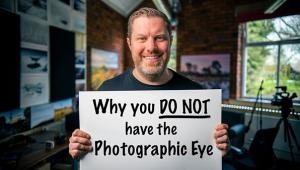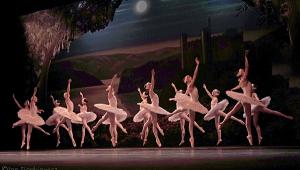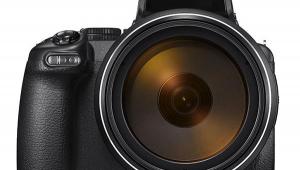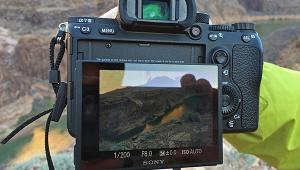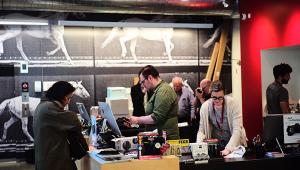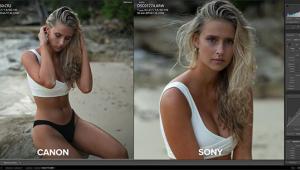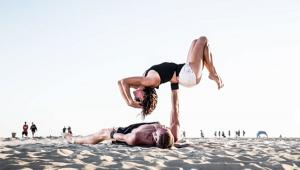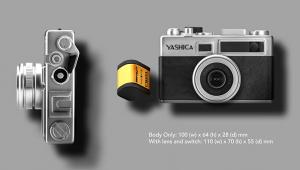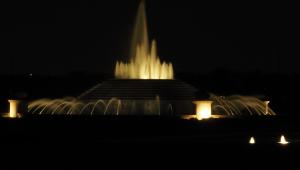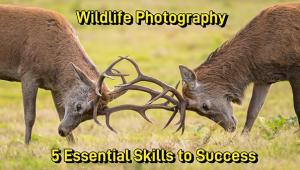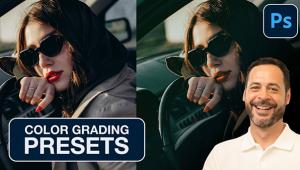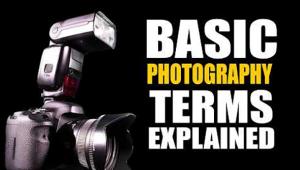The 25 Best Quotes About Photography
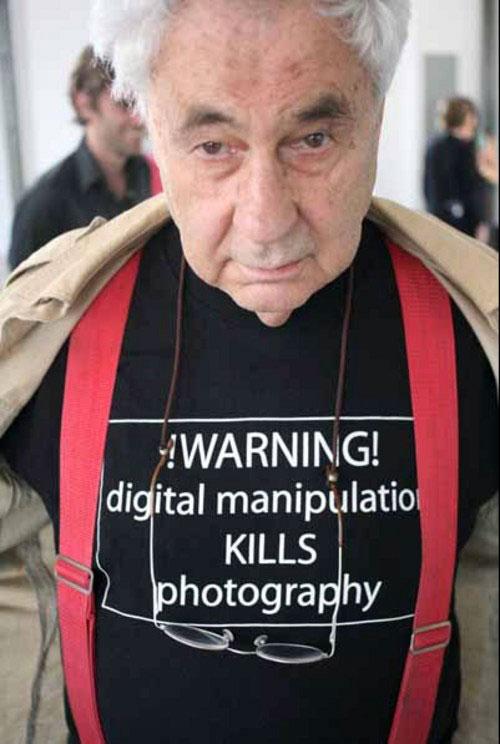
Here’s another photography list for you. Like any list of the best of anything, this list is subjective. Even if it were the “most useful,” “most thoughtful” or “funniest” quotes about photography, it would still be subjective.
So, why bother? Well, I think it’s worthwhile to put them out there for what they have to say about photographic techniques, philosophy, ethics and to have some fun. I picked the following quotes from historical and contemporary photographers and writers because I felt they had something useful, thought provoking or humorous to say. They are listed, not in descending order of “best-ness,” but in a narrative style that provides some context and flow.
I’d also like to invite readers to include their own favorites in the comments section below.
1) “A picture is worth a thousand words.” – New York Times editor Arthur Brisbane, 1911
One of the most durable quotes about photography, it’s a favorite of photographers because it seems to give us a “one up” over that other medium—words. Of course, there are those like writer/photographer David Mellonie who try to burst the bubble. He asks: “If a picture is worth a thousand words, why did God invent captions?”
There is little question that a picture can often convey content and emotion more quickly and powerfully than words. But, on the flip side, pictures can’t talk about themselves. That takes words. And many photographers over the decades—and those who write about the medium—have expended millions of words trying to explain, understand and establish the photograph’s position in the panoply of communications arts. Here are just a few of those words:
2) “Photography is the simultaneous recognition, in a fraction of a second, of the significance of an event as well as of a precise organization of forms which give that event its proper expression.” – Henri Cartier-Bresson, The Decisive Moment, 1952.
Note that the underlined phrase seems at odds with the title of the book. Turns out the English title failed to capture the essence of Cartier-Bresson’s point. In the original French, the title translates as Images on the Run. So, he wasn’t talking about a “moment” to make a photo; he was talking about an instant.
In addition to useful prescriptions about photographic technique, Cartier-Bresson was also a master of the one-liner. For example, see #3-5 in this list:
3) “Your first 10,000 photographs are your worst.” – Henri Cartier-Bresson
4) In promotion of the then new compact 35mm format: “If God had wanted us to photograph with a 2 1/4 by 2 1/4 camera, he would have put eyes on our bellies.” – HCB
5) And, referring to World War II: “The world is going to pieces and people like Adams and Weston are photographing rocks!” – HCB
Another photographer also quick with one-liners is the just-mentioned Ansel Adams. Probably the world’s best-known photographer, Adams was almost as adept with his pen as with his bulky view camera:
6) “You don't take a photograph, you make it.” – Ansel Adams
7) “To the complaint, 'There are no people in these photographs,' I respond, there are always two people: the photographer and the viewer.” – AA
8) “There are no rules for good photographs, there are only good photographs.” – AA
Adams and Edward Weston were founders of the famous f64 school. While Weston was not as verbally prolific as Adams, he did contribute the following:
9) “To consult the rules of composition before making a picture is a little like consulting the law of gravitation before going for a walk.” – Edward Weston
Many photographers report an interesting symbiosis between them and their cameras. It’s as if the camera changes their personalities when they are photographing, empowering them to brave situations in which they might not otherwise have placed themselves.
10) “When I have a camera in my hand, I know no fear.” – Alfred Eisenstaedt
11) “As a young person, and I know it’s hard to believe that I was shy, but you could take your camera, and it would take you to places: it was like having a friend, like having someone to go out with and look at the world. I would do things with a camera I wouldn’t do normally if I was just by myself.” – Annie Leibovitz
If you’ve ever sought to photograph aboriginal people, you may have been met with reluctance or even outright hostility—even if you’ve asked permission and offered some compensation. The reason? Many “primitive” people fear the camera will steal their souls.
Turns out many “modern” people have a similar fear, but probably for other reasons. Fear of being photographed, while is hasn’t been recognized as an official phobia, may be related to Opthalmophobia—fear of being seen or stared at.
12) “Photography is like stealing. You rob someone of a moment that exposes something essential about their character, their soul if you like. There are people…who find that terrifying; the thought that everyone, friend of foe, can get so close to you, look you straight in the eye and judge you without having any control over it or being able to respond. A part of them has become the property of the photographer.” – German writer Esther Verhoef, Close-up, 2009
13) “To photograph people is to violate them, by seeing them as they never see themselves, by having knowledge of them that they can never have; it turns people into objects that can be symbolically possessed. Just as a camera is a sublimation of the gun, to photograph someone is a subliminal murder—a soft murder, appropriate to a sad, frightened time.” – Essayist and filmmaker Susan Sontag, On Photography, 1977
Of all media, photography perhaps has the most unique relationship with time:
14) “Of all the means of expression, photography is the only one that fixes forever the precise and transitory instant. We photographers deal in things that are continually vanishing, and when they have vanished, there is no contrivance on earth that can make them come back again.” –Henri Cartier-Bresson, The Mind's Eye: Writings on Photography and Photographers, 1999
15) “It is a cruel, ironical art, photography. The dragging of captured moments into the future; moments that should have been allowed to be evaporate into the past; should exist only in memories, glimpsed through the fog of events that came after. Photographs force us to see people before their future weighed them down.” – Australian writer Kate Morton, The House at Riverton, 2007
Photography’s relationship to truth and reality is a theme running through many observations about the medium:
16) “A portrait is not a likeness. The moment an emotion or fact is transformed into a photograph it is no longer a fact but an opinion. There is no such thing as inaccuracy in a photograph. All photographs are accurate. None of them is the truth. ” – Famed portrait photographer Richard Avedon
17) “Photography is a reality so subtle that it becomes more real than reality.” – Photographic pioneer Alfred Stieglitz
This debate extends, of course, to the appropriateness of digital manipulation of images. Some cry, “Nothing is real anymore.” An extreme opinion on the subject comes from photographer and filmmaker Elliot Erwitt—a man who walks the talk:
18)

Moving from the philosophical to practical:
19) “What's really important is to simplify. The work of most photographers would be improved immensely if they could do one thing: get rid of the extraneous. If you strive for simplicity, you are more likely to reach the viewer.” – Documentary photographer William Albert Allard
20) “Light makes photography. Embrace light. Admire it. Love it. But above all, know light. Know it for all you are worth, and you will know the key to photography.” – Mr. Kodak, George Eastman
21) “Photography is the easiest medium with which to be merely competent. Almost anybody can be competent. It's the hardest medium in which to have some sort of personal vision and to have a signature style.” – Painter and photographer Chuck Close
And what about the contemporary scene in which imaging, through simplification and low cost, has become vox populi, the voice of the people. We are in the era of the “selfie” and the “selfie stick.” Uncounted billions of images are made annually only to be relegated by their makers to some digital black hole. Has this cheapened the image; made it more difficult for the serious photographer to create photos that people see as really “worth a thousand words?”
Photographer Robert Frank, today in his ‘90s, foresaw this:
22) “There are too many images, too many cameras now. We’re all being watched. It gets sillier and sillier. As if all action is meaningful. Nothing is really all that special. It’s just life. If all moments are recorded, then nothing is beautiful and maybe photography isn’t an art anymore. Maybe it never was.” – Robert Frank
Susan Sontag was similarly prescient. In her classic On Photography she observed:
23) “Today everything exists to end in a photograph. Needing to have reality confirmed and experience enhanced by photographs is an aesthetic consumerism to which everyone is now addicted. Industrial societies turn their citizens into image-junkies; it is the most irresistible form of mental pollution.” – Susan Sontag
Photography and pop culture have always been linked.
24) “Mama don’t take my Kodachrome away….” – Singer Paul Simon, 1973
Of course, eventually it was technology, not mama, who took away his film. You can sing the rest of the lyrics on your own.
The last words go to George Eastman, the man probably most responsible for the popularization of the medium:
25) “You push the button, we do the rest.” – George Eastman
